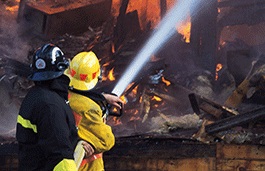Search
Agroecology, Water and Food Sovereignty MSc
Study level: Postgraduate
The MSc in Agroecology, Water and Food Sovereignty is a trans-disciplinary postgraduate degree addressing the fundamental challenge of securing ecologically sustainable and socially just food and agricultural systems.
Year of entry
2024-25
Location
Coventry University (Coventry)
Study mode
Full-time
Part-time
Sandwich
Duration
1 year full-time
2 years part-time
2 years sandwich
Course code
EECT008
Start date
September 2024
Course overview
With agroecology, food sovereignty, and other non-conventional food and farming approaches at its centre, this course aims to equip you with an in-depth understanding of some of the biggest issues confronting contemporary food and farming systems, and the solutions required for their remedying.
This course:
- Covers a dynamic range of cross-cutting and mutually enriching topics of relevance to 21st century food and farming, including agroecological and other non-conventional food and farming practices; the impacts of climate change on food and farming; gender and food systems; community resilience; farming ecology; issues of power, voice and positionality in food system governance; agriculture and fragile environments; Indigenous approaches to food and farming; water systems; and more.
- Explores examples and case studies at different scales and geographical and social contexts, local to global, North and South.
- Draws from and introduces you to a range of knowledge systems, including natural and social science, but also ‘people’s knowledge’ and participatory methods of social inquiry.
Rated Gold Overall
Teaching Excellence Framework (TEF) 20235 QS Stars for Teaching and Facilities
QS Stars University RatingsTop 5 Student City in England (Coventry)
QS Best Student Cities Index 2025Why you should study this course
- This course is currently one of the only courses of its kind, enabling you to analyse the complex interactions between social and natural systems, theory and practice, scientific and non-scientific knowledge, politics and people, and how these shape food and agriculture outcomes.
- Students on this course are embedded in the Centre for Agroecology, Water and Resilience (CAWR), an international research centre. Many of the centre’s current 50+ researchers contribute directly to the MSc programme, providing you with opportunities (subject to availability) to get directly involved in CAWR research and their expertise is available to help you to tailor your own study and research specialisations.
- We aim to provide a relaxed and informal learning environment and take student wellbeing seriously. Every student will have access to a personal tutor.
- The course is delivered at CAWR’s teaching facilities4 at the prestigious Ryton Gardens, which houses modern lab facilities, a five-acre organic farm and extensive and beautiful organic gardens.
- Course content is complemented by dedicated career advice for MSc students, specifically tailored to the field of ecologically sustainable and socially just food and farming and the organisations working therein.
Accreditation and professional recognition
This course is accredited1 and recognised by the following bodies:

Chartered Management Institute
As part of this course, you will undertake a professional development module which is currently accredited by the Chartered Management Institute (CMI) for the 2024-25 intake. Upon successful completion of the module, you will gain the CMI Level 7 Certificate in Strategic Management and Leadership Practice at no additional cost.
Coventry University’s accreditation with CMI is currently ongoing for the relevant modules and is regularly reviewed and monitored by the CMI through their quality systems.
Collaborations with other organisations
CAWR currently collaborates nationally and internationally with a multitude of different organisations in a variety of sectors including research, education, policy-making, grassroots organising, farming, civil society organising, and more.
The valuable thing about this course is that you’re being asked to look at what’s going on around and question how things have got to where they are now. I think you can gain knowledge anytime, but critical thinking that looks at injustice through the lens of food and research is the most valuable skill I’m going to walk away from with this master’s.
Lydia Leather, Agroecology, Water and Food Sovereignty MSc Student, 2021-2022
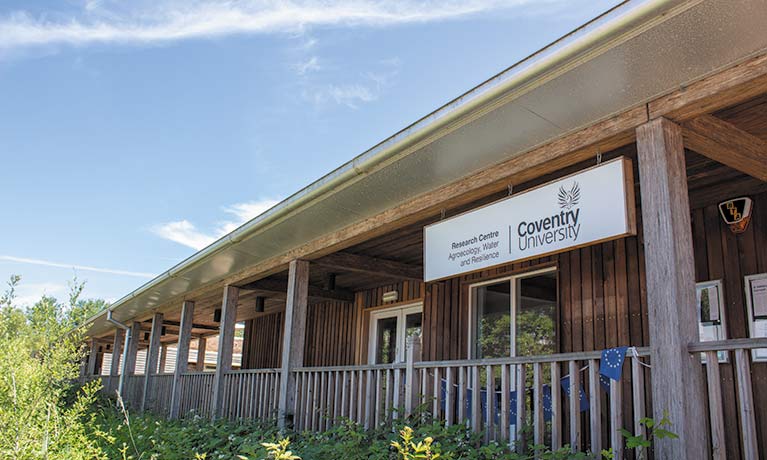
What you'll study
In the one-year, full-time MSc programme, you’ll undertake eight core teaching modules, designed to immerse you in CAWR’s ongoing research and help you understand and address the key issues facing food and farming in the 21st century.
Diverse modes of assessment aim to hone your knowledge and skills. For the Project module, you will conduct an independent research project on a topic of your choosing. You will have the opportunity to select from a range of projects presented by CAWR researchers enabling you to contribute directly to their work (subject to availability).
With work placement pathway
The ‘With work placement’ opportunity2 enables you to apply in semester 1 for an optional work placement of up to 12 months, extending the duration of your master’s to 24 months. The placement provides an opportunity for you to develop expertise and experience in your chosen field with the aim of enhancing your employability upon graduation. The work placement would take place in semesters 3, 4 and 5.
Please note that the optional placement modules incur an additional tuition fee of £4,000. Placement opportunities may also be subject to additional costs, visa requirements being met, subject to availability and/or competitive application. Work placements are not guaranteed but you will benefit from the support of our Talent Team in trying to find and secure an opportunity. Find out more about the work placement option.
I love teaching on this course. The students have consistently been inspiring. It is a real privilege to engage with people from such varied backgrounds and with such a passion for agroecology and food sovereignty. Students join us from across the globe and everyone learns from everyone else.
Dr Nina Moeller, Module Lead, Policies and Institutions for Water and Food Sovereignty, quoted 2022
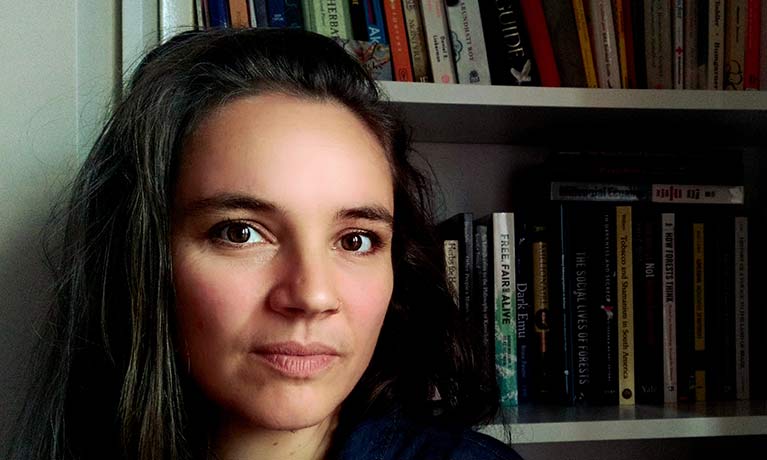
How you'll learn
Teaching and learning methods may include:
- lectures
- seminars
- tutorials
- presentations
- group projects
- workshops
- discussions
- participatory methods
- personal reflection.
Teaching contact hours
The number of contact hours may vary from semester to semester, however, on average, it is likely to be around 12-15 contact hours per week. In addition, you will be expected to undertake between 22-35 hours of self-directed study each week, depending on the demands of individual modules.
This course can be offered on a part-time basis. Whilst we would like to give you all the information about our part-time offering here, it is tailored for each course each year depending on the number of part-time applicants. Therefore, the part-time teaching arrangements vary. Request further information about part-time study.
The contact hours may be made up of a combination of face-to-face teaching, individual and group tutorials, and online classes and tutorials.
As an innovative and enterprising institution, the university may seek to utilise emerging technologies within the student experience. For all courses (whether on-campus, blended, or distance learning), the university may deliver certain contact hours and assessments via online technologies and methods.
Since COVID-19, we have delivered our courses in a variety of forms, in line with public authority guidance, decisions, or orders and we will continue to adapt our delivery as appropriate. Whether on campus or online, our key priority is staff and student safety.
Assessment
This course will be assessed using a variety of methods which will vary depending upon the module.
Assessment methods include:
- essays
- group work
- presentations
- coursework
- technical reports
- reflective writing
- podcasts.
The Coventry University Group assessment strategy ensures that our courses are fairly assessed and allows us to monitor student progression towards achieving the intended learning outcomes.
International experience opportunities
CAWR currently has an extensive network of contacts globally with whom we regularly collaborate. We have MOUs (Memoranda of Understanding) with multiple educational, research and practitioner institutions located around the world. Opportunities for MSc students to participate in our international networks vary from year to year; please enquire for more information.
Please note that all international experience opportunities may be subject to additional costs, competitive application, availability and meeting applicable visa and travel requirements are therefore not guaranteed2.
It’s very difficult to do justice to this course in one or two sentences. The amount of staff expertise embedded within our programme and the incredible breadth of developmental opportunities this offers our students is virtually unquantifiable. I can’t think of another comparable programme anywhere in the world.
Dr Josh Brem-Wilson, MSc Course Director Quoted 2022
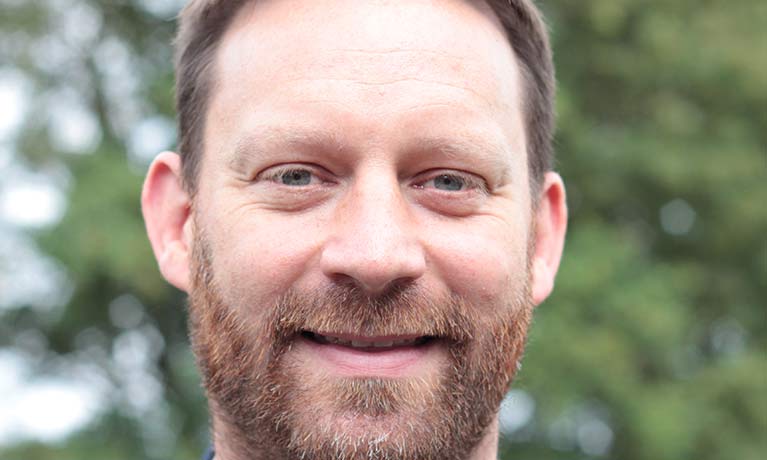
Entry requirements
Typical offer for 2024/25 entry.
As agroecology practitioners sharing real-world examples during our teaching, it is the conversations we have with our students when they reflect on their own experiences of the world - be it in the UK or internationally - that really enrich our collective learning.
Dr George McAllister, Assistant Professor in Stabilisation Agriculture, quoted 2022
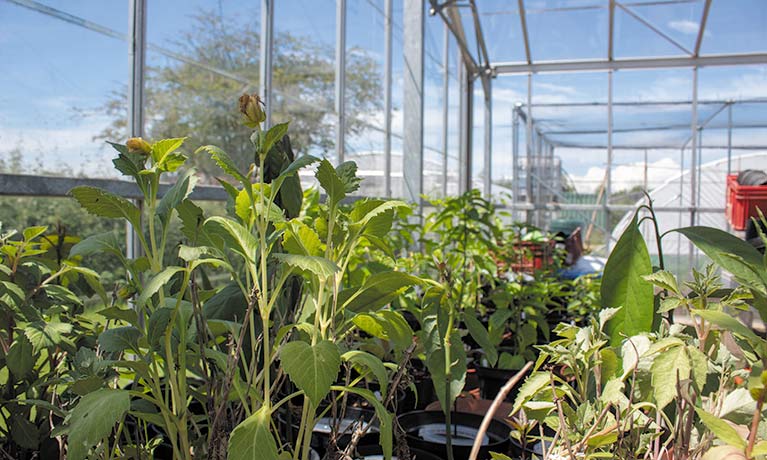
Fees and funding
2024/25 tuition fees.
| Student | Full-time | Part-time |
|---|---|---|
| UK, Ireland*, Channel Islands or Isle of Man | £11,200 | £15,200 (with prof. experience) | Request fee information |
| EU | £11,200 | £15,200 (with prof. experience) per year with EU Support Bursary** £18,600 | £22,600 (with prof. experience) per year without EU Support Bursary** |
Not available |
| International | £18,600 | £22,600 (with prof. experience) | Not available |
For advice and guidance on tuition fees3 and student loans visit our Postgraduate Finance page and see the university's Tuition Fee and Refund Terms and Conditions.
We offer a range of International scholarships to students all over the world. For more information, visit our International Scholarships page.
Tuition fees cover the cost of your teaching, assessments, facilities and support services. There may be additional costs not covered by this fee such as accommodation and living costs, recommended reading books, stationery, printing and re-assessments should you need them.
The following are additional costs not included in the tuition fees:
- Any optional overseas field trips or visits: £400+ per trip.
- Any costs associated with securing, attending or completing a placement (whether in the UK or abroad).
*Irish student fees
The rights of Irish residents to study in the UK are preserved under the Common Travel Area arrangement. If you are an Irish student and meet the residency criteria, you can study in England, pay the same level of tuition fees as English students and utilise the Tuition Fee Loan.
**EU Support Bursary
Following the UK's exit from the European Union, we are offering financial support to all eligible EU students who wish to study an undergraduate or a postgraduate degree with us full-time. This bursary will be used to offset the cost of your tuition fees to bring them in line with that of UK students. Students studying a degree with a foundation year with us are not eligible for the bursary.
Facilities
The course is delivered by the Centre for Agroecology, Water and Resilience (CAWR), one of Coventry University’s Research Centres. CAWR is a thriving community of scholars and practitioners with a vibrant Postgraduate Research community. CAWR is based at Ryton Gardens (approximately five miles from the main campus, accessed via a regular university bus service), sharing a site with an organic farm, a Heritage Seed Library, and extensive organically-managed gardens. CAWR’s offices include teaching and hot desk space available for students, as well as a staff-student kitchen and dining area.
High Performance Analytical Hub
The CAWR High Performance Analytical Hub comprises modern equipment available for student projects involving inorganic and organic chemistry, for example assessing environmental pollutants, soil fertility and food quality.
Horticultural facilities
CAWR students have access to horticultural facilities (glasshouses, polytunnels, outside growing spaces), available for student projects involving trials concerned with soil fertility and the recycling of wastes, crop varieties, weed, pest and disease management.
Numerical Computation Suite
CAWR's Numerical Computation Suite houses high-performance computing facilities for the analysis and visualisation of a range of environmental models including the latest generation of climate projections used by the UN's Intergovernmental Panel on Climate Change.
Careers and opportunities
On successful completion of the course, you will be able to:
- Undertake transdisciplinary assessments of many of the key issues facing 21st century food and agriculture, bridging their political, social and ecological dimensions and the different systems of knowledge through which these are revealed.
- Communicate more effectively around food and agriculture, particularly from an agroecological and food sovereignty perspective, utilising more precise knowledge, concepts and language.
- Design and implement an independent research project in an area of your specialisation (including understanding how to utilise the relevant methods and facilities).
- Situate yourself in a wider movement of food and agricultural systems transformation, with a better understanding of your role – and contributions - therein.
- Build effective and impactful collaborations.
- Advocate for food more ecologically sustainable and socially just food and agricultural systems, based on in-depth knowledge of the challenges that inhibit their attainment, and the solutions that are required for their overcoming.
Career opportunities may include employment in development organisations, local and national governing bodies, international institutions, or entrepreneurship in sectors such as agriculture, environmental management, civil society, and policy. You may also decide to pursue scholarly research to strengthen the impact of academia on shaping resilient societies.
Where our graduates work
The course is designed to appeal to a wide range of graduates from a variety of disciplines. Students successfully completing the course may have the opportunity to go on to do a PhD at the Centre or elsewhere, and pursue a career in academia. Other potential employers include:
- National and international government agencies
- Non-governmental organisations
- Research and development organisations
- Vocational teaching and training organisations
- Community based organisations and movements advocating for food system transformation
- Private sector, including small food companies and the farming sector.
CAWR is an exceptionally stunning place to learn. Being surrounded by organic farms and gardens, as well as a group of research scholars and professionals, gives you the impression that you're doing something different- something great.
Bijina Karichery, Agroecology, Water and Food Sovereignty MSc Student, 2021-2022
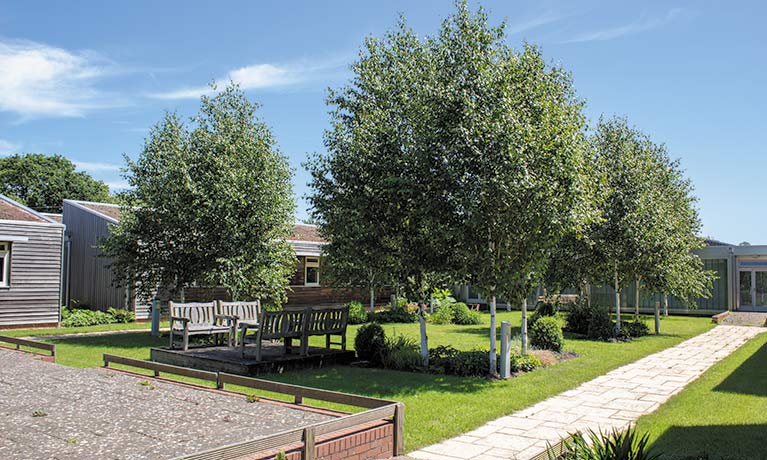
Graduate Immigration Route visa
Based on current information from the UK Government, international students whose study extends beyond summer 2021 may be eligible for a visa under the UK Government’s Graduate Immigration Route, which will enable students to stay and work, or look for work, in the UK at any skill level for up to two (2) years. Check the most up to date guidance available to check your eligibility and any updates from the UK Government before making an application or enrolment decision.
How to apply
You may also like
